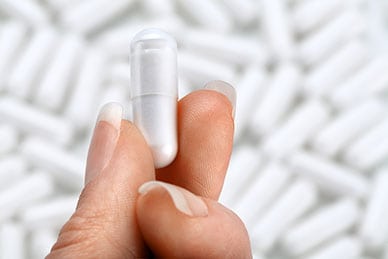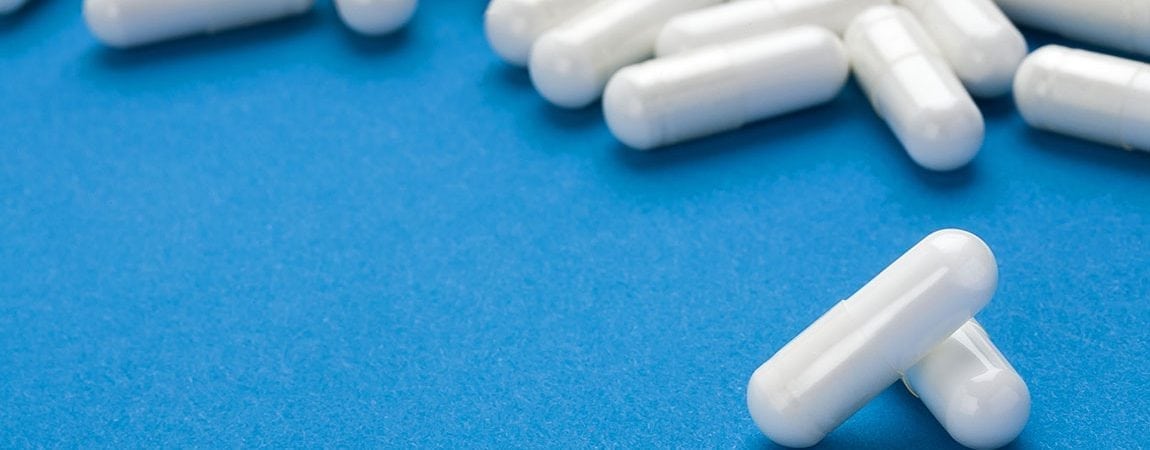Research on Glucosamine and Seizures Suggests Supplementation May Offer Protection
A seizure is an event that happens because of a sudden electrical abnormality in the brain. There are many different types of seizures. Seizures that affect just one region of the brain are known as focal seizures, while seizures that affect both sides of the brain are called generalized seizures. Even within these categories, there is more specificity. For example, there are many types of generalized seizures, including grand mal, petit mal, clonic, myoclonic, tonic and atonic seizures. Each seizure has its own collections of symptoms, which can include loss of consciousness, muscle spasms and convulsions, loss of bladder or bowel control and more.
Isolated seizures can have a wide variety of causes, including medications, head injuries and high fevers. Seizures generally last between 30 seconds and two minutes and don't cause any lasting harm. However, the chronic seizures caused by seizure disorders can be a detriment to daily living and quality of life. Those who suffer recurring seizures can suffer physical injuries due to the muscular convulsions. Seizure disorders are also known as epilepsy; this disorder affects about three million adults and 470,000 children in the United States alone.
New Study Looks at Glucosamine and Seizures
Scientists believe that over-excitability of brain cells may be at the root of epilepsy. A recent study, published in the Journal of Neuroscience, looks at the effects of a common dietary supplement known as glucosamine on the excitability of brain cells. This study found that glucosamine reduces brain cell excitability in rats and mice. Although this was not a human study, nor a conclusive one, it raises important questions about the possibilities of new developments in the treatment of epilepsy.
A Possible New Addition to the Seizure Disorder Treatment Arsenal?
Though this study does not present a suggestion to try to actually relieve epilepsy with glucosamine, it paves the way for future research to investigate this chemical's effects further. Effective new epilepsy treatments could be developed in the face of such research.
Currently, the selection of epilepsy treatments available is not quite ideal. Current medications can only prevent some of the seizures, and even this moderate benefit is only experienced by about 70-80 percent of patients. This means that 20-30 percent of people with epilepsy are resistant to epilepsy medications. When medications don't help, brain surgery or nerve stimulation procedures may be required. Even if a medication does help, most of them have undesirable side effects. So, the development of new treatments for epilepsy originating from this research into glucosamine and seizures (whether medicating with glucosamine itself or other similar chemicals that produce the same effects in the brain) could potentially help improve the quality of life for many thousands of people.
Supplementing with Glucosamine
 Glucosamine is one of the most common non-nutrient dietary supplements. But, what exactly is it? Glucosamine is a type of chemical called an amino sugar (alternatively, a sugar protein). It occurs naturally in bones and bone marrow, as well as in other species such as shellfish and fungus. Glucosamine helps your body build cartilage, which is a firm connective tissue found mainly around your joints.
Glucosamine is one of the most common non-nutrient dietary supplements. But, what exactly is it? Glucosamine is a type of chemical called an amino sugar (alternatively, a sugar protein). It occurs naturally in bones and bone marrow, as well as in other species such as shellfish and fungus. Glucosamine helps your body build cartilage, which is a firm connective tissue found mainly around your joints.
Further research could lead glucosamine to become a popular anti-seizure supplement. However, its most common uses are for joint problems; most notably, glucosamine can be beneficial for people with osteoarthritis. It can help reduce the rate of collagen degradation, slowing the progression of the disease, as well as providing minor pain relief and increasing range of motion. It is, of course, not a miracle cure—it slows the progression of osteoarthritis but does not cure it completely, and one meta-analysis showed that it is capable of only producing a modest 13-point reduction in pain on a scale of 0-100.
Glucosamine is also sometimes used by people who partake in high-impact physical activity, such as running. Its cartilage-preserving effects could help prevent wear and tear on joints caused by such sport. One study also showed that the supplement helps to heal acute knee injuries in athletes.
Glucosamine is a very safe supplement to take. The most common side effect is flatulence; other side effects such as nausea, heartburn and gastrointestinal distress are rare. Nevertheless, people with certain medical problems should exercise caution when supplementing with glucosamine. If you have a shellfish allergy, glucosamine could be dangerous depending on how severe your allergy is, because the majority of commercial glucosamine is produced from shellfish exoskeletons. However, some glucosamine products are made from corn or wheat, which would be the safe form of glucosamine for someone with a shellfish allergy. Furthermore, consult your doctor before taking glucosamine if you have diabetes, high cholesterol, high triglycerides, liver disease, cancer or asthma. Glucosamine may be risky to take alongside certain prescription medications such as blood thinners, so ask your doctor first if you are taking any prescriptions.
This recent research is by no means a suggestion that seizure disorders can be treated with glucosamine alone. If you have a seizure disorder, ask your doctor before taking glucosamine and do not try to replace any prescription medications with this supplement.





